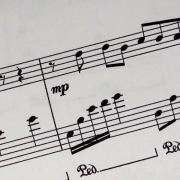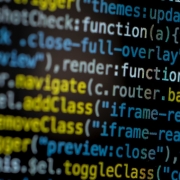Why It Is Important To Practice Properly
DELIBERATE PRACTICE AS THEORETICAL BASIS FOR OSME
Millions of music students all over the world practice a musical instrument every day. It is well known that practice is necessary to improve how you play. But does more practice time always lead to more learning progress?
Millions of music students all over the world practice a musical instrument every day. It is well known that practicing is necessary to improve how you play and that frequent practice leads to progress. So, often the first question to someone who claims to play an instrument is “how many hours a day do you practice?”
But does more practice time always lead to more learning progress? Or is it perhaps even essential to practice correctly and consciously? That’s exactly what K. Anders Ericsson, a Swedish psychologist who researches expert skills, says. His theory of Deliberate Practice has been quoted extensively since his influential 1993 paper “The role of deliberate practice in the acquisition of expert performance”, in his book “Peak” and in popular science books such as Outliers by Malcolm Gladwell.
Our project OSME is a generator for music exercises and sheet music on the browser, and thus an attempt to improve the exercise process and skills of musicians. Therefore, it is important to have a solid scientific basis for what constitutes efficient (musical) practice and how musical ability develops.
We can refute the first hypothesis presented here, which states that any form and duration of practice leads to maximum abilities. Often people reach learning plateaus in different areas that require practice. After initial progress, a period is reached in which, despite continuous practice, little to no increase in abilities occurs. But through improved practice methods, rethinking techniques and motivation such as the prospect of promotion, even experts with ten years of professional experience can improve their performance by 50 to 100 percent (Typewriter, Book & Norvell, 1920).
Many still believe that outstanding skills cannot be achieved through practice, but require a genius that is predetermined and unchangeable by genes or even higher powers. These individuals would reach an expert level extremely quickly. Recent scientific findings, however, refute this more and more and show less and less influence of genes or “natural talent”. Simon and Chase showed in 1973 that no chess player reached the rank of international master without about a decade of intensive practice. Mozart only wrote significant compositions after about a decade of targeted instruction beginning at the age of six, with his father, himself an experienced composer. Thus a myth has formed around Ericsson’s theory, a simplification according to which ten thousand hours or ten years of practice turn each into a master. But of course it is more complicated, and not every hour of practice is an hour of conscious practice in Ericsson’s sense, which is why, as already described, learning plateaus are often reached.
So what is conscious and effective exercise? It requires motivation of the learner to improve. It should tie in with the learner’s previous level, which a music teacher can specifically optimize with OSME and the setting of various parameters, as an advantage over unchangeable (and copy-protected) exercises from published editions. Same or similar exercises should be repeated often, which we want to make possible by specifying a number of repetitions and generating similar notes. And there should be immediate or very quick feedback to correct mistakes and confirm success. This is traditionally done by music teachers, but the frequent system of one lesson per week does not correspond to the concept of fast feedback. Therefore, OSME should be able to evaluate the execution of the exercises (e.g. via microphone and audio analysis), or at least support a self-assessment of the learner according to the instructions of the exercise.
OSME as a project must continuously strive to improve the quality of the exercises and the exercise process. Ericsson’s theory is one of the most useful and solid scientific foundations for this.










Leave a Reply
Want to join the discussion?Feel free to contribute!